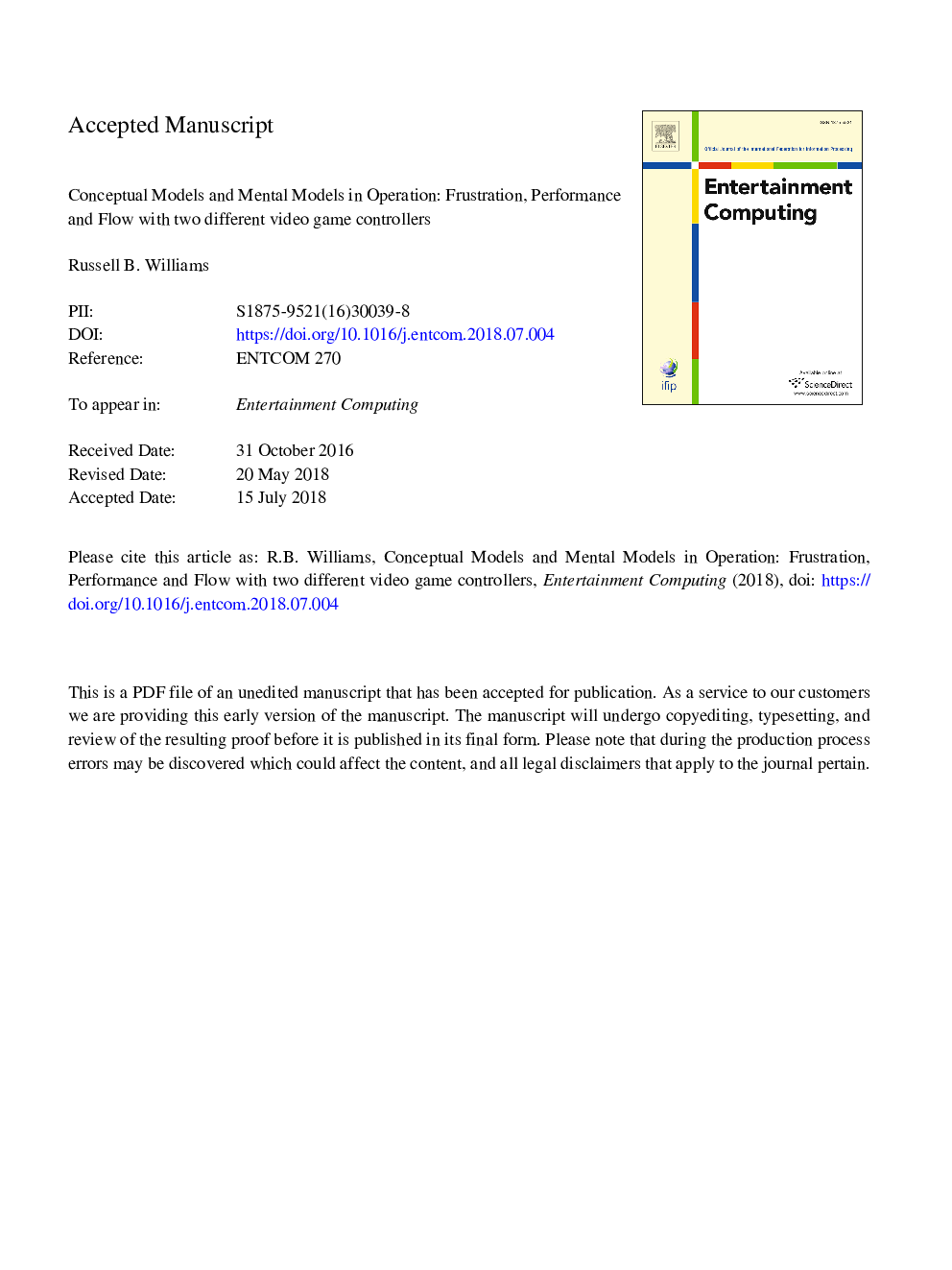| Article ID | Journal | Published Year | Pages | File Type |
|---|---|---|---|---|
| 6854568 | Entertainment Computing | 2018 | 40 Pages |
Abstract
Control devices are an important variable of interest in studies of frustration, aggression, presence and engagement with video games. Findings have been mixed, depending on controller type and associated actions within games. In this study we look at hypothesized outcomes, from the perspective of conceptual models and mental models, in frustration, engagement and performance while playing a driving simulation using two controllers that are based on different conceptual models and have been available for differing amounts of time. Recognizing that conceptual models are exogenous as a part of the device design and mental models operate endogenously to access design features, it was found in this study that there was no difference in frustration or engagement on the basis of conceptual models while performance was better with the older, less-natural, standard-controller. Findings supported the importance of mental models that have developed over time through gaming experience. Frustration, engagement and performance have relationships in this data demonstrating the role and development of mental models. Conceptual models need to be understood in terms of mental models in the study of the effects of video game play and it is suggested that frustration may have a stronger connection to expectation than other technological factors in game play.
Related Topics
Physical Sciences and Engineering
Computer Science
Artificial Intelligence
Authors
Russell B. Williams,
